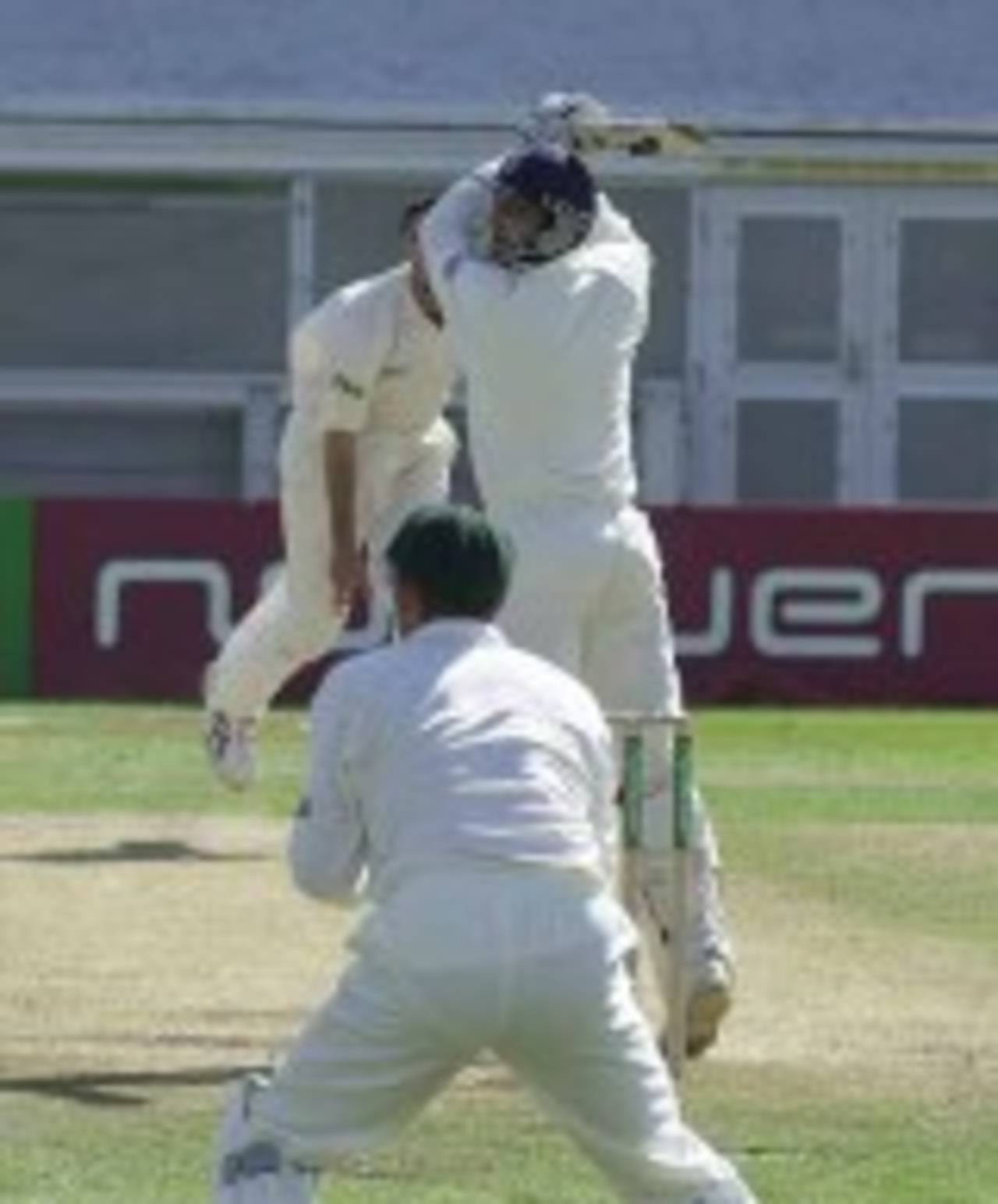When Butcher cut loose
In bright sunshine, I waited for the traffic gridlock to die down, floating around the streets listening to the post-match interviews on the radio, a beatific smile on my face and humming David Bowie: “We can be heroes, just for one day.” Life felt
Mike Holmans
Feb 25, 2013, 10:41 PM

Paul McGregor/ESPNcricinfo Ltd
In my post on the iniquities of the career average, I mentioned Mark Butcher, and it occurs to me that it’s about time somebody rang down the curtain on his Test career. He hasn’t retired and he wasn’t dropped: he missed the last three Tests of the 2004-05 series in South Africa through injury but was ignored once fit again.
Butcher was identified in his teens as a promising talent, and his ascent to the England ranks was virtually inevitable, but once there, although he played a couple of good innings against South Africa and one against Australia, it was apparent that he was not up to the job. His defensive technique was no match for Test-class pace bowling and he played spin the way a guitarist would play the bagpipes.
In a number of parallel universes, he would have lived out his days on the county circuit carrying the millstone of “Test failure”, but in this one there was a stream of injuries running up to the 2001 Ashes which resulted in him getting another chance.
He grabbed it with both hands and became a fixture at number three for the next four years.
A compact left-hander, his business shots were the slapped drive through extra cover, the neat late cut past backward point and the flick forward of square leg, with the occasional straight drive mixed in. However, his other main shots were the waft to gully, the chip to mid-off and the spoon to midwicket, which had him permanently teetering on the edge of danger, compounded by his unfamiliarity with judging a run.
Yet he was one of England’s most consistent performers. The remodelled Butcher averaged 42.53 over the period: the only other reasonably regular number threes to have averaged as much for England since 1970 are Alec Stewart and David Gower.
The trouble was that he was a supporting actor rather than a star, and that is not really enough from a number three in Test cricket. Consistent though he was, despite appearances, it was rare for him to play the kind of decisive innings one expects from first drop.
Once, though, I was there when he did it, and oh, what a day it was!
It was the fifth day of the Headingley Test in 2001. Adam Gilchrist had declared the previous evening with the intention of nicking a couple of wickets before the close but had been thwarted by bad light, so England had the little matter of 310 runs to get.
My train was late, and the groan from the crowd as I reached the gate told me a wicket had fallen. 33-2 it was, with hope already ebbing away fast.
Scratchily, Butcher and captain Nasser Hussain kept the new, swinging ball out. Hussain then lashed out and deposited the ball in the car park, which was the best tactical move of the day, as the replacement refused to deviate off the straight. Gradually, they developed a partnership and were still together at lunch.
The crowd smiled nervously at each other during the interval, wondering if they should dare to hope. Butcher still seemed to be living on borrowed time – how many of those dabs through the gully region had been mere inches short of a fielder?
On they went, and then, after another forty minutes, something seemed to click. Butcher’s shots were being hit with an unfamiliar confidence; though they still went fairly close to fielders, they looked precisely placed. When he reached his hundred, the place erupted. It was on!
He lost Hussain with 100 needed; his place as Butcher’s foil was taken by Ramprakash, though he went just before the end and it was Usman Afzaal who saw Butcher stroke England to victory, ending on 173*.
In bright sunshine, I waited for the traffic gridlock to die down, floating around the streets listening to the post-match interviews on the radio, a beatific smile on my face and humming David Bowie: “We can be heroes, just for one day.” Life felt good again, even though the Ashes were long gone.
For that day especially, thank you, Mr Butcher.